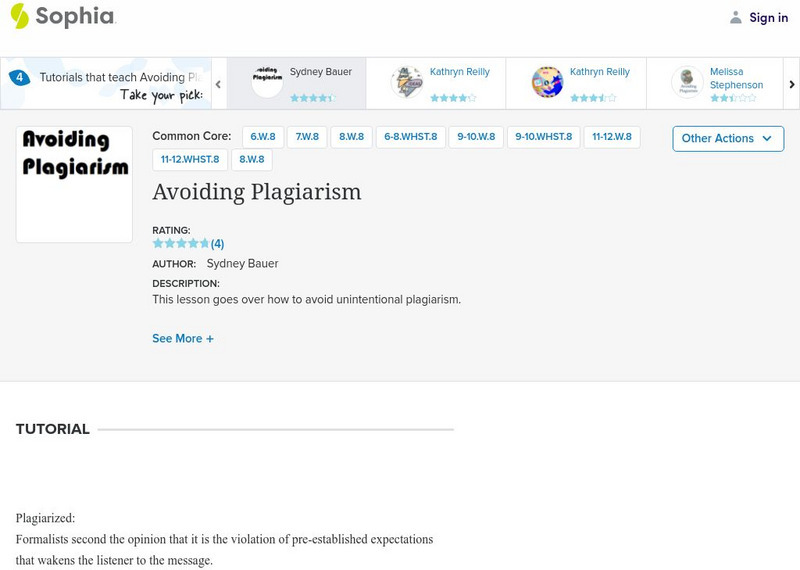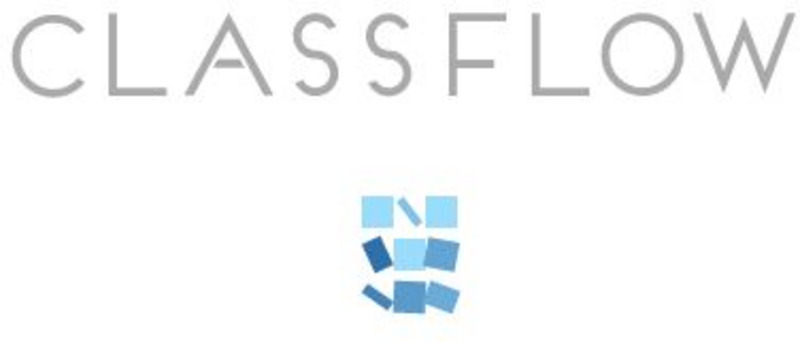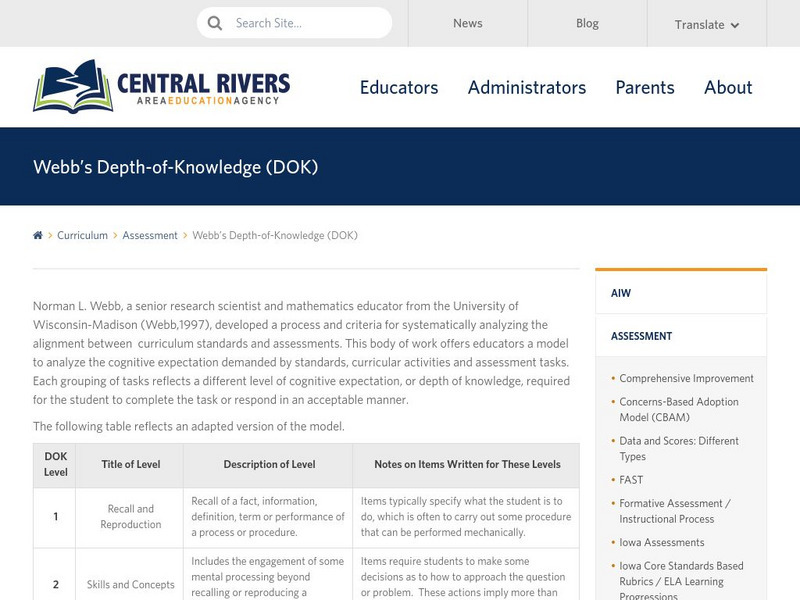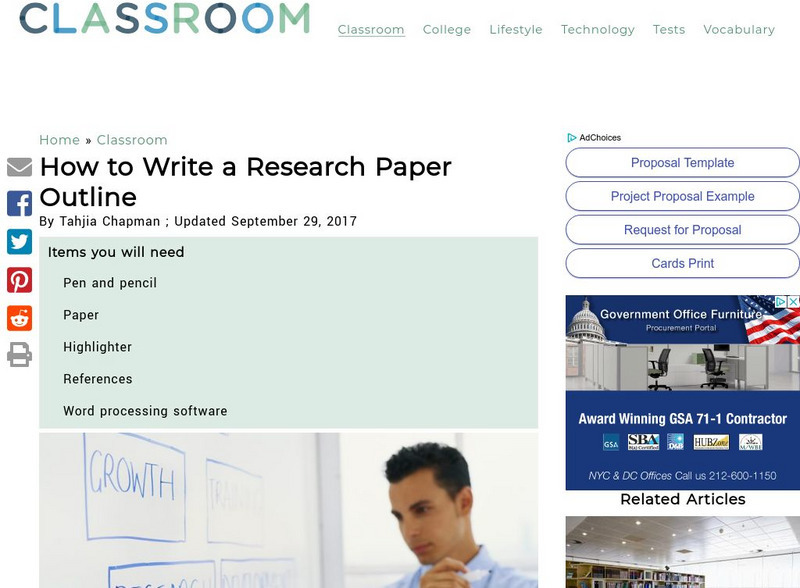Lumen Learning
Lumen: Evaluating Sources: Craap Analysis of Multimedia Sources
This lesson plan focuses on evaluating multimedia sources using the CRAAP Analysis: Currency, relevance, authority, accuracy, and purpose. Click on the NEXT button on the bottom right for more information. SL.11-12.2 Eval&Integrate...
Lumen Learning
Lumen: Using Sources: Using Online Citation and Reference Tools
This instructional activity focuses on using online citation tools and being aware that they make mistakes that must be corrected. W.9-10.8 Sources
Lumen Learning
Lumen: Using Sources: Applying Paraphrase, Summary, and Quotation
This lesson focuses on when to use paraphrase, summary, and quotation to integrate source material into your paper.
Lumen Learning
Lumen: Using Sources: Credibility Markers
This lesson focuses on strategies for maintaining credibility and authority in your writing. It also provides a table of different types of credibility markers, an explanation, and the application for each. SL.9-10.2 eval & integrate...
Lumen Learning
Lumen: Using Sources: Putting It Together: Using Sources
This is a summary of the lessons on integrating credible sources using paraphrase, summary, and quotations and citing sources. Click on the Next button on the bottom right to learn about Why It Matters: Multimodality; you will have the...
Lumen Learning
Lumen: Research Process: Finding Sources
This lesson focuses on how to find sources including information on research strategies: preliminary, intermediate, and advanced. It provides a variety of resources available in each level including videos: " How To Google Like A Pro!...
Lumen Learning
Lumen: Introduction to Writing About Literature
This is an introduction to writing about literature; it includes a list of learning objectives for writing about literature including finding and using historical sources to discuss the historical context, finding and using literary...
Lumen Learning
Lumen: Annotated List of Useful Databases
This is an annotated list of useful databases including the difference between search engines and databases and between databases and catalogs, broad-based databases, source-type databases, and subject-type databases.
Lumen Learning
Lumen: Finding and Evaluating Research Sources
This lesson focuses on how to find, evaluate, and use primary and secondary sources using printed and online sources. It provides practice writing activities such as examining the same topic through primary and secondary sources and...
Lumen Learning
Lumen: Writing About Literature: Finding Literary Criticism
This article focuses on how to find literary criticism including scholarly journals, citations from other works, a list of useful links to find sources, and TAMU libraries' website.
Indiana University
Indiana University: Plagiarism
Uses examples to explain the right and wrong way to use reference material. Shows how a rewrite can still be plagiarism. Briefly discusses common knowledge and paraphrasing.
Wisc-Online
Wisc Online: Identifying Acceptable Paraphrases
This learning module defines paraphrasing and discusses how to paraphase, and then they identify acceptable paraphrases of source material.
Library of Congress
Loc: How to Cite Digitized Primary Sources
Learn from the Library of Congress how to correctly cite the many electronic resources available in their collection. Films, legal documents, photographs, maps, sound recordings and other unusual cases are covered. Be sure you click on...
Wisc-Online
Wisc Online: Writing Effective Paraphrases
In this learning module, students practice paraphrasing brief, non-fiction passages.
Online Writing Lab at Purdue University
Purdue University Owl: Evaluating Sources: Overview
This entry explains the need for evaluation sources, especially internet sources. W.9-10.6 Techno
Other
Inf Ohio: Educational Multimedia Guidelines Tip Sheet [Pdf]
A ready-to-print tip sheet with guidelines for students and teachers about using text, video, pictures, music, and other materials and content sources without violating copyright.
Alabama Learning Exchange
Alex: Independent Research Project
Young scholars will use the Internet to gather key facts using a variety of online resources and present their findings in a word processed paper in APA style.
Other
Ryerson University: Library: Research Help Guide: Evaluate Your Sources
Resources to help students evaluate the materials they use in their research.
Khan Academy
Khan Academy: Organizing Information Quick Guide
Organizing information questions ask you to understand and analyze how a passage works to make an argument. What is the progression of ideas in the passage? or What is the purpose of a specific paragraph?
Sophia Learning
Sophia: Avoiding Plagiarism: Lesson 3
This lesson goes over how to avoid unintentional plagiarism. It is 3 of 4 in the series titled "Avoiding Plagiarism."
ClassFlow
Class Flow: Paraphrasing and Bibliography
[Free Registration/Login Required] In this flipchart, students learn some basic strategies for writing a research report including how to paraphrase passages and create an accurate citation of sources used.
Other
Central Rivers Aea: Webb's Depth of Knowledge (Dok)
This page offers a wealth of downloadable resources for teaching critical thinking skills. Choose the thinking skill you wish to teach, and several .pdf files will be available, including strategies, assessments and student handouts.
Leaf Group
Classroom: How to Write a Research Paper Outline
This is an article focusing on gathering research information including paper requirements, citation information, and content, and then completing note cards and an outline.
FNO Press
From Now On: The Research Cycle, 2000
Excellent site from From Now On for students who are assigned research papers and need to begin finding and reading material. Part of a book, the site gives information on questioning, evaluating, planning, gathering, sorting,...





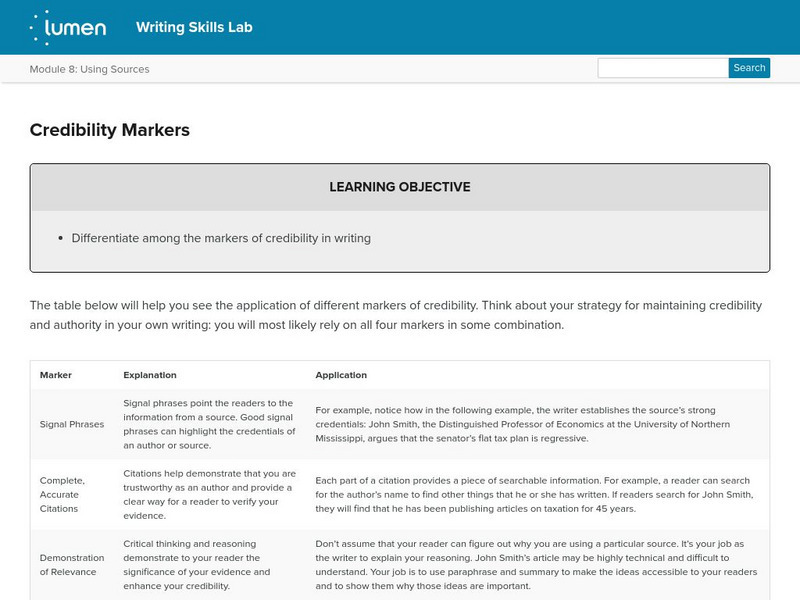


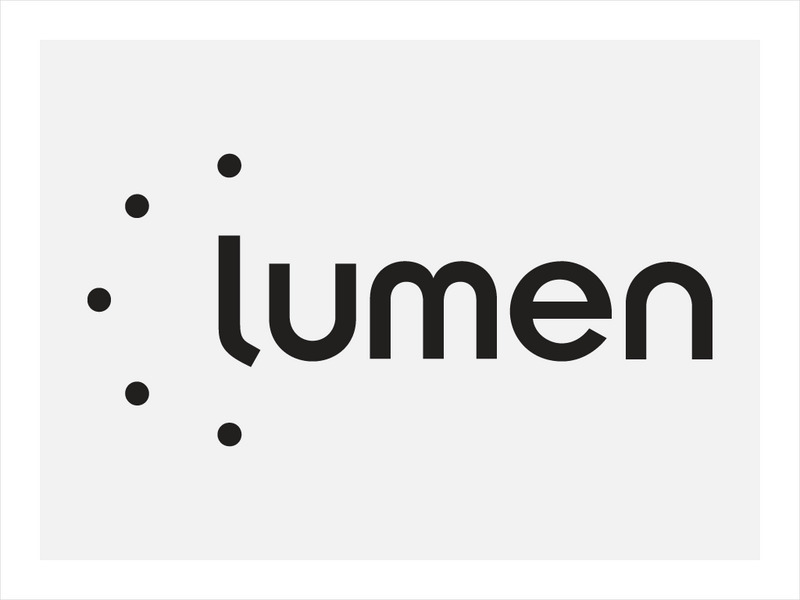
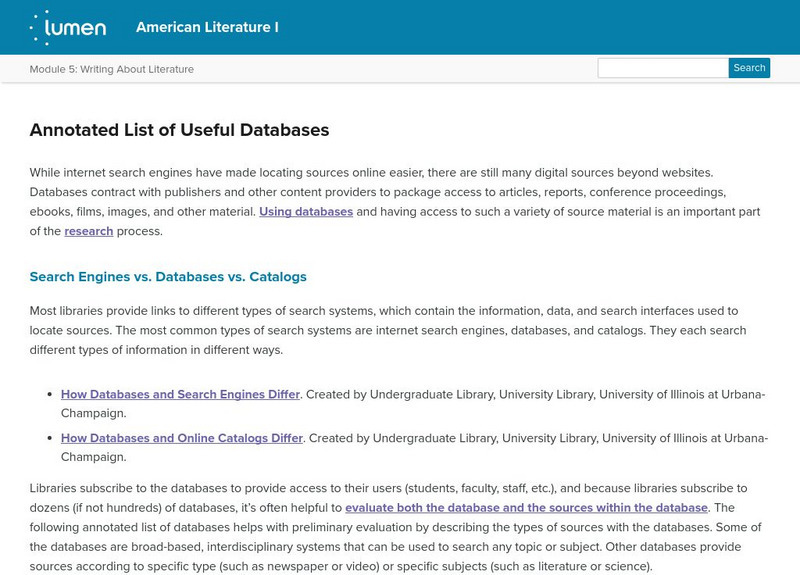



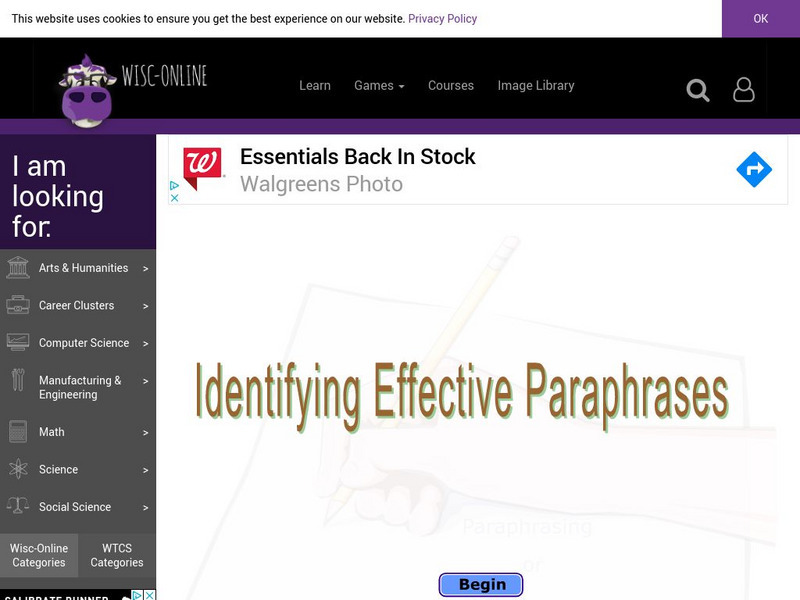


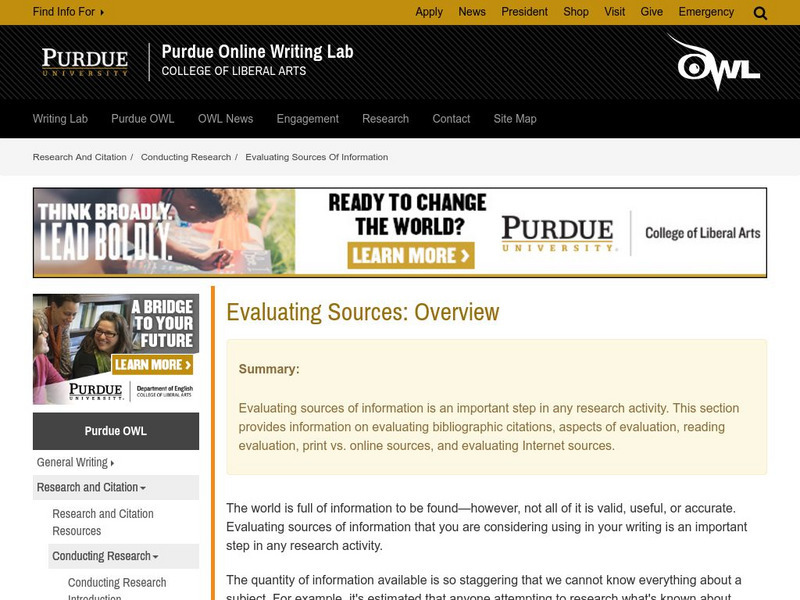
![Inf Ohio: Educational Multimedia Guidelines Tip Sheet [Pdf] Handout Inf Ohio: Educational Multimedia Guidelines Tip Sheet [Pdf] Handout](https://d15y2dacu3jp90.cloudfront.net/images/attachment_defaults/resource/large/FPO-knovation.png)


